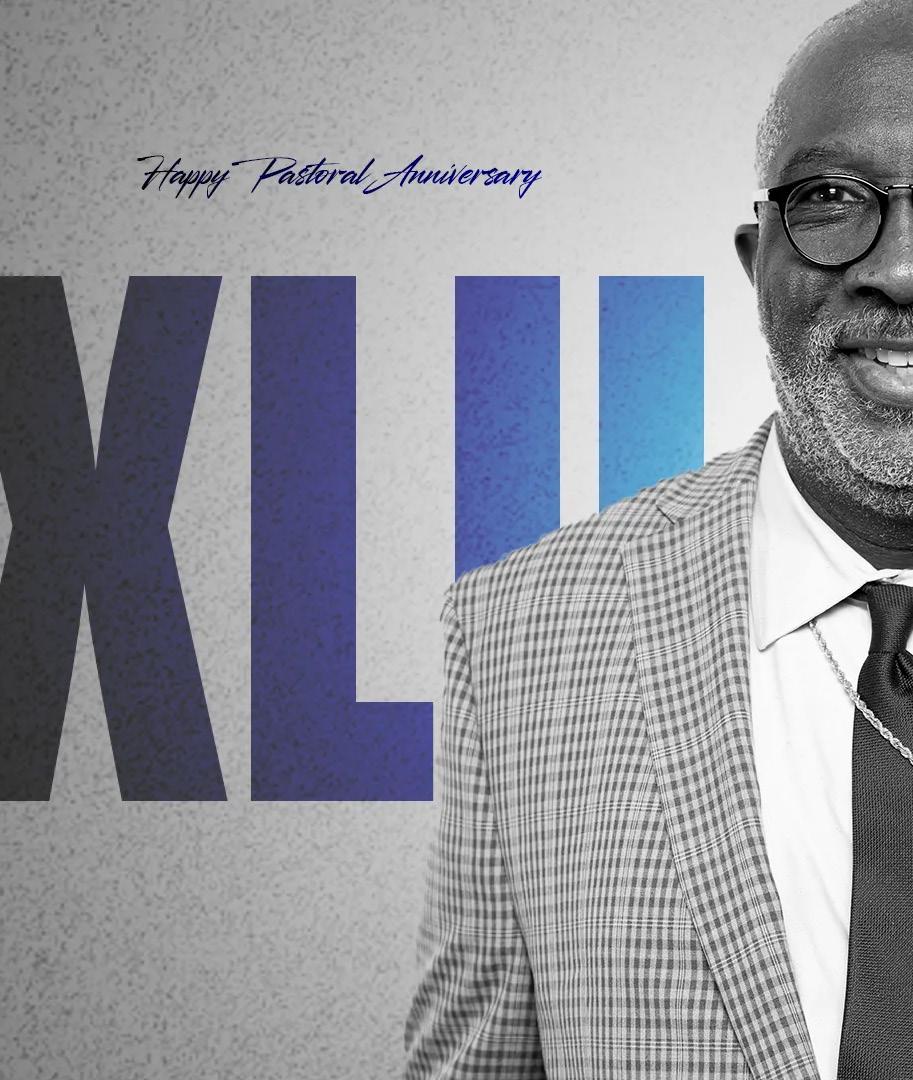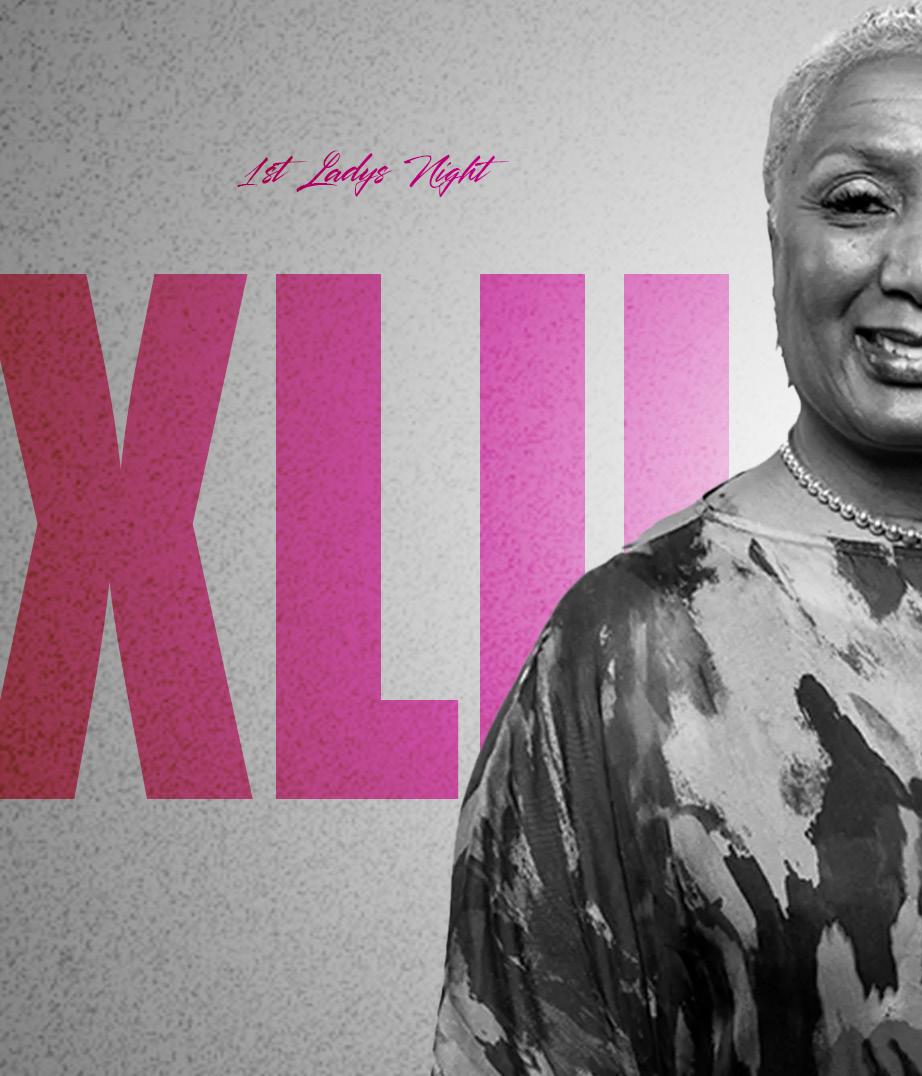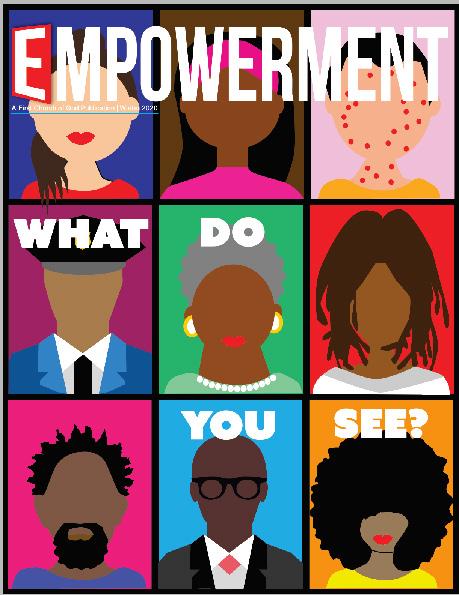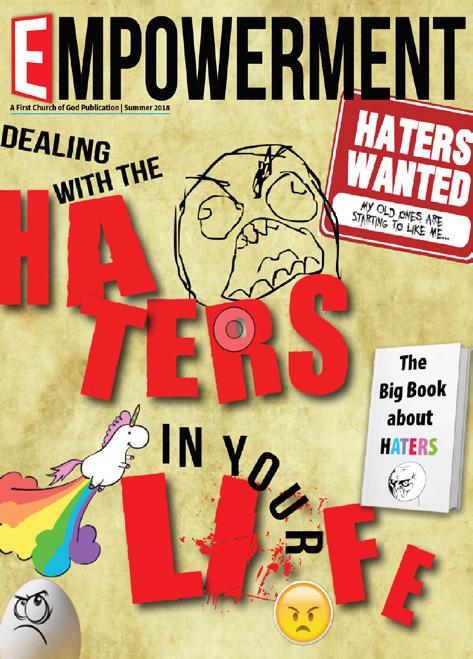









I hope this letter and issue of EMPOWERMENT finds you in good health and prepared to embrace a fresh season.
Reflecting on both this correspondence and our publication, EMPOWERMENT, I'm reminded of the significance behind its name. It's not merely a label; it encapsulates our core mission and aspiration. We strive for EMPOWERMENT to truly empower, to equip you for various aspects of life. I firmly hold that you are capable of leading a remarkable life; it's your divine design.
As you delve into the content of each edition, our aim is to inform, inspire, and beckon you to embrace the fullness of what awaits you. Please remember, I'm in your corner, rooting for you, and lifting you up in prayer.
Blessings
- Bishop Timothy J. Clarke


Empowerment
Spring 2024
Bishop Timothy J. Clarke
Executive Publisher & Chief Executive Officer
Brother Edmund Davidson Publisher
Sister Qwinita Bell
Contributor
Sister Deborah Thompson
Brother Carlin Armstead Editor
Contributor
Sister Michele A. Thomas Contributor
Sister Villia Davidson Senior Advisor
Want to EMPOWER others? We are looking for writers, reporters, editors, and graphic artists to spread the Word! Please contact brother Edmund Davidson at edavidson67@gmail.com for more information.
We value your feedback and encourage you to share your thoughts about the publication. Please email us at edavidson67@gmail.com and let us know! WE WANT TO HEAR FROM YOU
Introduce your friends and loved ones to Empowerment, an online publication from First Church of God. Published quarterly, Empowerment delivers words of wisdom, inspirational stories, and advice from members of First Church of God in one lifechanging and easy to read publication. Please share this issue... . . . and let others be Empowering a people ready to meet the LORD!








By Carlin Armstead
1. Make a joyful shout to the LORD, [a]all you lands!
2. Serve the LORD with gladness; Come before His presence with singing.
3. Know that the LORD, He is God; It is He who has made us, and [b]not we ourselves; We are His people and the sheep of His pasture.
4. Enter into His gates with thanksgiving, And into His courts with praise. Be thankful to Him, and bless His name.
5. For the LORD is good; His mercy is everlasting,And His truth endures to all generations.


As spring flowers grow and blossom and the grass turns green, we are reminded of nature’s season of revival and renewal. It also provides an opportunity for those who were born again (saved) to remember and revisit how we began again, in our minds, spirits, and souls.
We are constantly motivated to move forward after we experience positive and/or negative events in our lives. While this is good, we must not forget where we came from and how past experiences apply to our present reality.
The refrain in the song “Lead Me to Calvary,” written by Jennie Evelyn Hussey in 1921, says: “Lest I forget Gethsemane, lest I forget Thine agony, lest I forget Thy love for me, lead me to Calvary.” The refrain reminds us to remember what God, through Jesus, did when He sacrificed and surrendered His life to show His love for us.
African Americans and the church have a unique relationship between music and spirituality. The songs we sang throughout history documented our struggle to survive and thrive despite what would and will come to challenge us.
• During slavery, songs were sung to communicate directions. They were pleas for guidance from God, and offerings of worship and reverence to God for His presence and intervention in the lives of those who were enslaved.
• Songs during segregation and the Civil Rights movement motivated people to fight for their freedom and rights. They served as inspiration to persevere in persecution and encourage one another to keep moving forward (Ephesians 5:19).
• The people of Israel were enslaved by the Egyptians. God gave the Israelites leaders to guide them to freedom in the Promised Land. The Israelites sang songs to and about God during their journey toward freedom. Today, the church struggles with the challenges of being relevant and progressive, while not compromising its foundation and values in a world of secularism and chaos. Our challenge, collectively and individually, is to answer the question “Why Do We Sing?”
We sing because of who God is in all His glory. We sing because He has been merciful and gracious toward us. We sing to usher in His presence and set the atmosphere to hear a Word from the Lord. We sing to express our feelings toward Him. Kirk Franklin’s first hit song in 1993 modernized a portion of the classic “His Eye Is on The Sparrow” written in 1905 by Civilla D. Martin and composer Charles H. Gabriel.
Someone asked a question Why do we sing?
When we lift our hands to Jesus
What do we really mean?
Someone may be wondering
When we sing our song At times we may be crying And nothing's even wrong
I sing because I'm happy I sing because I'm free His eye's on the sparrow (that's the reason)
That's the reason why I sing
Excerpt from “The Reason Why We Sing” by Kirk Franklin



By Michelle Sutton
Most pregnant women are looking forward to the experience of being a new parent. They have heard uplifting stories from friends and family about the “joys of motherhood”. They are ready to begin bonding with their little one. Although many will agree that having a baby is a blessing, the reality is that parenting is very hard work. Those early days of adjusting to your new role and lifestyle can be some of the toughest. Many moms experience what medical experts call “The Baby Blues” when the demands of parenting become very stressful. After a few weeks, they will settle into their new routine.
However, for some new mothers, the story may be different. Those moms may experience more intense stressful feelings that last for longer periods of time. Their symptoms are described as postpartum depression; severe sadness, worry and tiredness normally caused by hormonal changes. And according to the Center for Disease Control and Prevention (CDC), one in eight moms will experience postpartum depression after giving birth.

One such mom who experienced postpartum depression (PPD) is Tiffany Ealy. Tiffany is an MSN, RN Clinical Nurse, and Educator. This mother of three shared that after giving birth to her first child, it was hard to verbalize what she was feeling. “I have experienced PPD with each pregnancy and it was different each time. In 2000, I suffered in silence. I was not sure what was happening, and I didn’t know how or what to say”. However, that changed for Tiffany in 2019 and 2021. “I was proactive

during my pregnancies and made it a point to understand my risk factors which were anxiety, childhood trauma, traumatic delivery and marital discord” she says. “With that, I began advocating for myself and collaborated with my providers and decided to use talk therapy and medication that was safe for pregnancy and breastfeeding”.
According to the CDC, symptoms of postpartum depression include:
• Crying more often than usual
• Feelings of anger
• Withdrawing from loved ones
• Feeling distant from your baby
• Worrying or feeling overly anxious
• Thinking about hurting yourself or your baby
• Doubting your ability to care for your baby
If moms are feeling any of these symptoms, they are encouraged to seek help immediately. Speak with your family doctor, clergy, or professional counselors. One program that specializes in postpartum depression is POEM: Perinatal Outreach and Enrichment with offices in Columbus and Dayton. Raquel Williams, MSW, LSW is their Education Manager and Hailee Childs, MFT, PMH-C is the Senior Manager of P.O.E.M. Community Programs. According to information shared by them, anyone can be at risk of PPD, however 50% of Black Moms and birthing persons will experience a maternal mental health complication.
Hailee experienced a personal connection with PPD. She shared, “I personally struggled with perinatal anxiety and post-traumatic stress disorder, stemming from a very traumatic birth experience. I have also experienced two early term miscarriages. I struggled pretty significantly with flashbacks, hypervigilance, constant worry surrounding my baby’s well-being, fear of impending doom, loss of appetite, heightened sense of panic, difficulty sleeping, irritability”. However, things changed when Hailee sought professional help. “So, a combination of clinical mental health support, talking with a counselor, medication management, and peer support groups eventually got me to a space where I felt like I could thrive again and enjoy my baby and all of the new mama things”.
Tiffany suggests it is essential that a person with PPD feels they are being heard. “As the support system, you do not have to agree with or resolve the “issue”; any verbal response should always validate the feelings of the new parent and encourage them to share the information with their healthcare providers. Parents with PPD need you to listen and be a safe space for them to reflect on their emotions”.
Additional resources when you feel overwhelmed:
• The 988 Suicide and Psychiatric Crisis Lifeline provides 24/7 free and confidential support
• National Institute of Mental Health -866-615-6464 or www.nimh.nih.gov
• National Alliance of Mental Illness 800-950-6264 or www.nami.org


By Qwinita Bell

“And it shall come to pass, call. I will answer; and while speaking, I will hear.”
On March 7, 2003, at 1:58 a.m. I lost my husband to small cell metastatic cancer. It was the beginning of a 15-year struggle in the valley of grief, loss of purpose and despondency. I presented well from the outside but inside I was lost; aimlessly drifting with no plan, purpose, or direction; making one unwise decision after another and self-isolating myself from others. Yes, I still went to church out of habit. I still read my Bible but not for understanding but again out of habit. I still prayed for direction but with no real sense of urgency; not knowing what direction I was headed in and absolutely no idea of how to ever get back to “me.” I now see that God was getting me in position to restore what “the canker worm had taken away.”
In June of 2018, my oldest daughter moved back home, she did not want to live where I was, so we decided to move to Columbus. In October of that year, we moved, and I soon began to fellowship with First Church of God. Under the leadership of Bishop Clarke and the sincere friendship of Deacon S. Skelton, I slowly began the climb out of my self-imposed valley of despair.
I began to see and sense changes in my life. It is as though the Bible blossomed within me; I understood clearer what it was that God had offered me. In response
I rededicated my life, got rebaptized on May 6, 2019, and found my purpose in God’s Word. I was able to recognize Gods work in my life and in the fruition of, what I thought were unanswered, prayers that I had prayed for. I could see He never left me; I left Him!
A valuable lesson I learned is that we put ourselves in valleys, but because God loves us, we are never alone in them. I am eternally grateful and still awed that when I thought He was not listening, I had been heard. I thank Him daily that because He loves me the move to Columbus was His answer and my path out of “the valley.”
I have relocated back to my home city, but I can honestly say I have a different outlook on what I see and what I allow in my life. I know how to search the Word for answers, seek out pastoral direction and while waiting I am assured that God will answer in His time. I have united with a Bible teaching and believing church and have begun to really search the scriptures and involve myself with other women of integrity in the church. I understand that valleys are a part of life, but we are not supposed to stay in them. It is made clear in His comforting Word in Psalm 23:4 (KJV), “Yea, though I walk through the valley of the shadow of death, I will fear no evil: for thou art with me; thy rod and thy staff they comfort me.
pass, that before they while they are yet
Isaiah 65:24


Be sure to check out past issues of Empowerment! cover for uplifting stories, informative















Empowerment! Just tap or click on a informative articles, and positive news.












